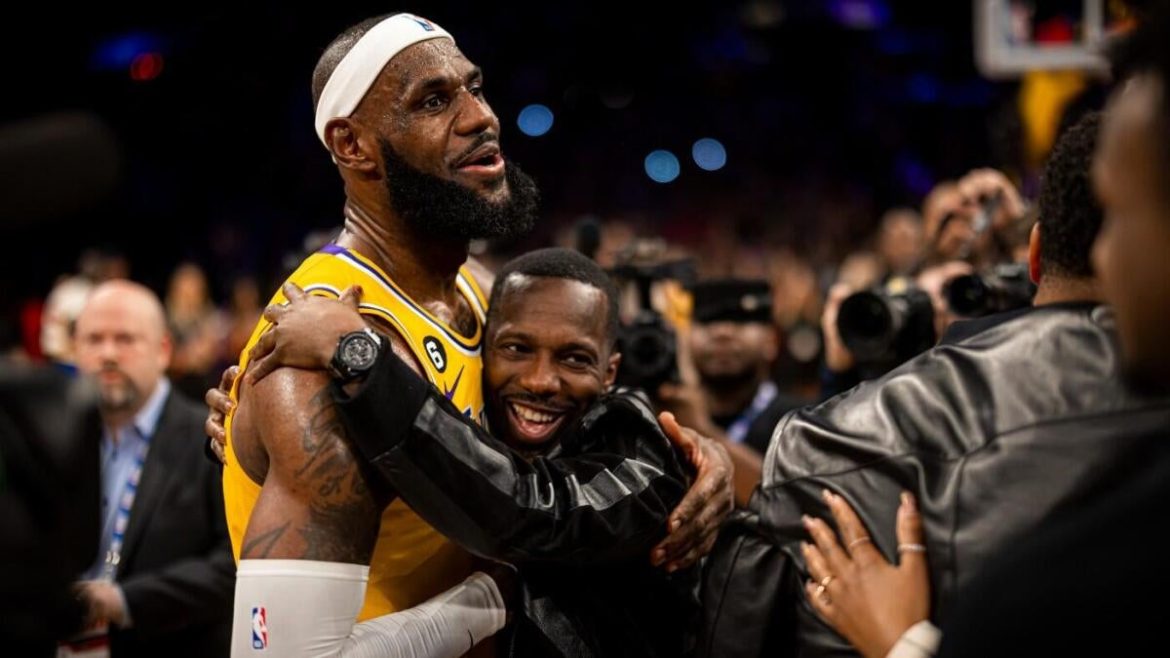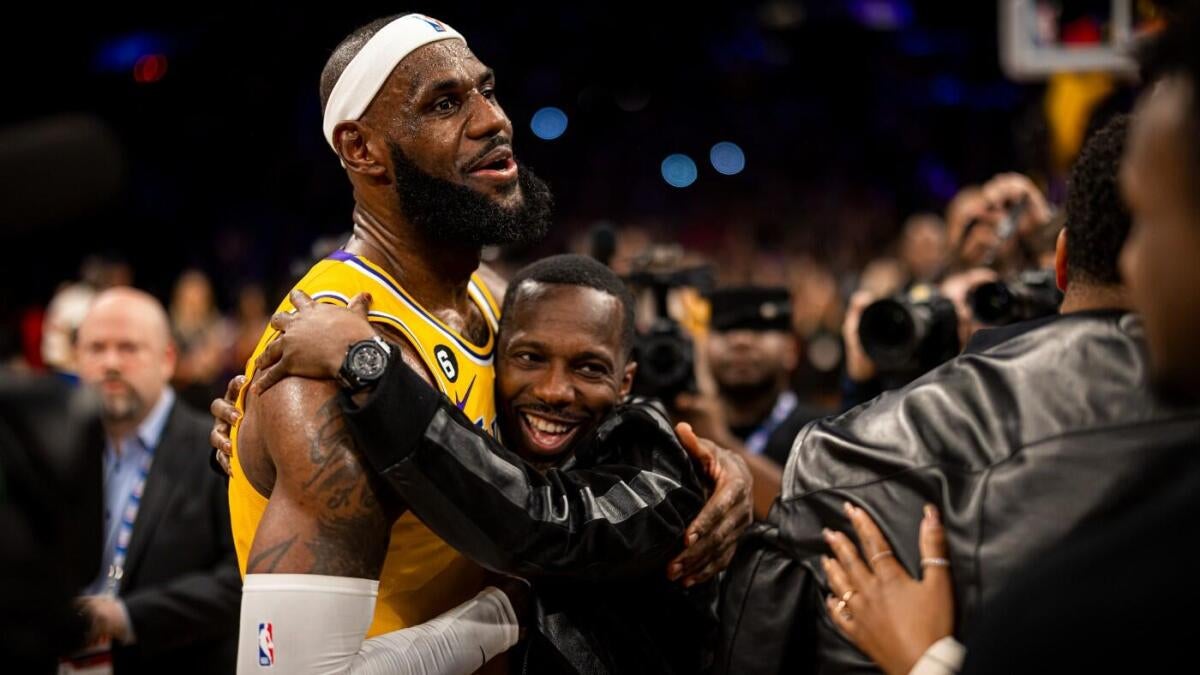The ongoing debate regarding the NBA’s greatest player of all time (GOAT) has been reignited by a fresh clash between two of basketball’s most influential figures: Rich Paul, agent to LeBron James, and David Falk, formerly Michael Jordan’s agent. This exchange not only highlights the enduring passion surrounding the Jordan-versus-LeBron rivalry but also layers new dimensions onto the discussion, focusing on the context of their careers, the scrutiny faced, and the evolving nature of professional basketball.
The Spark of Controversy
David Falk, who managed Michael Jordan during his prime, recently criticized LeBron James, subtly questioning his place atop the NBA hierarchy. Falk’s comments, interpreted by many as a jab at LeBron’s achievements and legacy, stirred the hornet’s nest. In response, Rich Paul delivered a pointed retort, defending LeBron and challenging the validity and fairness of Falk’s remarks.
Rich Paul’s critique was not merely a defense but an aggressive rebuttal. He pointed out the perceived hypocrisy of Falk’s stance, emphasizing how LeBron has navigated pressures and challenges that Jordan never confronted. This marks a significant pivot in the GOAT debate by shifting the narrative from raw statistics and championships to the broader context in which these players have operated.
Revisiting the GOAT Debate: Beyond Numbers
The debate between Michael Jordan and LeBron James typically revolves around metrics: number of NBA championships, MVP awards, scoring titles, and All-NBA selections. Jordan’s six titles and iconic clutch performances have long influenced his unrivaled status, while LeBron’s longevity, versatility, and consistent excellence over two decades have amassed an impressive resume, including four NBA championships and numerous personal accolades.
Rich Paul underscores an important aspect often overlooked—the differences in era, scrutiny levels, and societal pressures. Jordan’s career unfolded in the late 1980s and 1990s, a period with a different media landscape and fewer social media distractions. LeBron’s era includes far greater public exposure, social activism, and a relentless digital news cycle, amplifying every aspect of his professional and personal life. Paul argues this context increases the challenges LeBron must overcome, framing his achievements as reflective of a more complex modern sports environment.
The Role of Agents in the GOAT Conversation
It’s rare for agents to publicly engage so directly in debates over their clients’ legacies. Traditionally, agents maintain a degree of separation, focusing on contract negotiations and career management rather than public battles. Rich Paul’s vocal involvement signals a new era where sports agents actively shape public perception and player narratives.
Paul, as CEO of Klutch Sports and a close confidant of LeBron, uses platforms such as The Rich Eisen Show and other media appearances to defend and elevate LeBron’s standing. His willingness to confront figures like Falk indicates a strategic, assertive approach to influence the conversation, recognizing that the GOAT debate transcends mere talking points — it impacts sponsorships, branding, and cultural legacy.
Scrutiny and Societal Change: What LeBron Faced That Jordan Didn’t
Paul’s arguments shed light on the evolution of athlete scrutiny. Michael Jordan did not operate under a social media microscope; negative press was filtered and less immediate. LeBron, however, faces incessant commentary from analysts, fans, and even his peers, amplified by social platforms revealing every onscreen expression and off-court activity.
Moreover, LeBron’s activism and openness on political and social issues generate additional layers of judgment that Jordan rarely experienced publicly. By integrating advocacy into his persona, LeBron shoulders a different kind of pressure, one entwined with identity and influence beyond sports.
Fans and Analysts: The Undying Passion for Comparison
The GOAT discussion is never-ending, fueled by nostalgic fans, emerging talent evaluations, and respect for different basketball styles. Some fans declare LeBron the greatest for his all-around skills and longevity. Others remain loyal to Jordan’s flawless Finals record and global sports mythology.
This debate even touches on historical players like Bill Russell, whose dominance in championships outnumbers both but whose era differs significantly. Analysts occasionally weigh in, and sports media continues to dissect statistics and intangibles, while fans on social media fan the flames.
Conclusion: A Debate Shaped by Context, Not Counting Stats Alone
The recent exchange between Rich Paul and David Falk proves that the Michael Jordan versus LeBron James GOAT debate remains as vibrant—and contentious—as ever. But beyond the tally of rings and awards lies a deeper dialogue about the pressures players face, the media environment shaping their careers, and the evolving cultural role of athletes.
LeBron James’ journey reflects the complexities of the modern athlete’s existence, where greatness is measured against an increasingly scrutinous backdrop. Rich Paul’s bold defense reframes the debate, inviting fans and pundits to consider the broader picture and the challenges unique to LeBron’s era.
Ultimately, the GOAT discussion is not about crowning a definitive winner but appreciating the unique legacies of two transcendent athletes whose impacts resonate on and off the court. This debate will continue, enriched by new voices and perspectives, reminding us that greatness in sports is far more than a scoreboard metric—it’s about influence, resilience, and the contexts that define how we remember legends.





